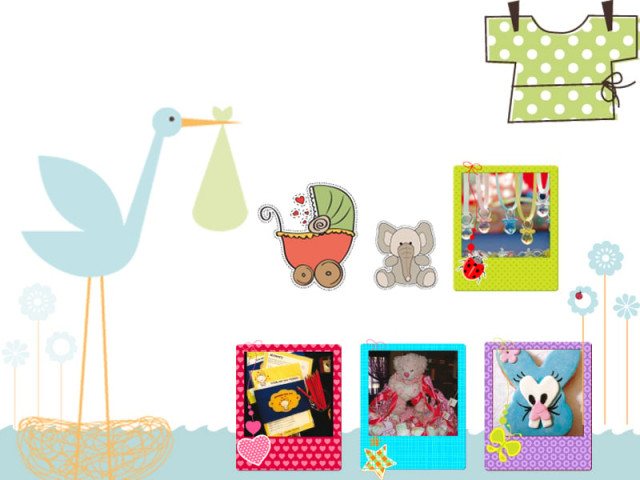From Gode Bharais to Baby Showers
Ms. T explores the evolution of how we have come to commemorate the impending birth of a child.

The light amusements of the modern baby shower are in stark contrast to the sacred mood of the gode bharai. PHOTO: FILE
Do you recall the movies of yesteryear which showed those classic gode bharai celebrations? The expectant mom, fully pregnant, decked up like a bride, while the other women crowded around her singing and celebrating her milestone, placing gifts of gold and fruit under her ghoonghat and into her henna-laden hands? If you are old enough to remember this brand of cinema, you might even have attended — or been the recipient of — such a ceremony yourself. But you would also understand that this traditional way of honouring a mother-to-be is gradually becoming a thing of the past, replaced by the more western version, the baby shower.

Once the preserve of housewives in the US, the baby shower has become an important feature in the social lives of urban women in the upper-middle income bracket in Pakistan. Five years ago, few people knew what a baby shower was; now expectant moms are routinely asked if their friends will throw them one. It has become a veritable status symbol with women often competing to throw the best baby shower amongst their family and friends. Various cultures have found different ways to commemorate the impending birth of a child and honouring the mother-to-be, but the baby shower as we know it today came about in the baby-boom era and evolved with the consumer ideology of the 1950s and 1960s. Its main purpose was to ‘shower’ the mother-to-be with gifts and lessen the financial burdens of infant care. Today, however, the ceremony entails an entirely new level of expenditure with an assortment of themes, decorations, foods and entertainment options. “I have seen everything from superhero drinks to diaper-plates and DIY candy stations,” says Areeba Kamal who has been frequenting her friends’ baby showers lately. “Once, there was even a cake shaped like a pregnant belly which honestly looked more terrifying than appetising!” she adds, laughing.
Rituals common to the modern baby shower ceremony include shopping trips centred around the baby, asking the mother-to-be to unwrap her gifts and establishing a playful and homely environment for the party games. A favourite feature is the ‘diaper cake’ which looks like an edible cake from afar but is actually an arrangement of diapers for the new mom. Guessing how many diapers are in the ‘cake’ is a common game at baby showers. “Some popular games include Guess the Gender, the Mommy-Daddy Word Jumble and my personal favourite, Measure the Mommy!” says Ayeza Mariam Mir of Dudes’n’Babes, an event management business specialising in birthdays and baby showers. “It is always hilarious when the mommy-to-be gets embarrassed over her belly.”

The light amusements of the modern baby shower are in stark contrast to the sacred mood of the gode bharai. While both events are held to mark a woman’s transition into motherhood, the gode bharai is imbued with spiritual significance. It is also a more personal and less lavish matriarchal affair, restricted to women in the family. “The idea was that during the 7th month of pregnancy, a girl’s maikah — traditionally just the married women — would visit her susraal bearing gifts. They would then take their daughter home until her ‘sawa maheena’ (40-day post delivery),” says Samina Ummat Sufi, recounting her own experiences. “I remember feeling quite emotional at my own gode bharai. It was just a very momentous occasion in our lives.”
Unlike in the baby shower, the focus of the gode bharai was solely the mother-to-be, who would sit down with the daaman of her dress spread out before her. Her kinswomen would then place gifts of gold, fruits, money — anything that was considered beneficial for her — on her daaman, along with many prayers. Hence the name ‘gode bharai.’ “It was sort of like the modern day dholki, just with added significance,” explains Aisha Javed, a mother of three who has attended both the traditional ritual and the modern event. “While the expectant mother was given gifts, the other women would sit with the dholak and sing traditional songs. Some would even dance.”
While the gode bharai was organised primarily by one’s in-laws for her maikah as a welcome and expression of gratitude for the coming baby, the baby shower is generally thrown by young women for their close friends as a token of love and celebration. The planning process is often as enjoyable as the actual event and one might even enlist professional help. Once the themes are selected, the sky is the limit for the decorations and menu. “Some customers go crazy with the details,” says Lahore-based caterer Muneeze Khalid. “Nobody asks for the just the quintessential blue or pink balloons and streamers anymore. Most of our clientele are young girls who want it to be the absolute best, no matter what the price.”
The replacement of the gode bharai with the chic hues and sleek look of the contemporary baby shower is an indication of increasing globalisation and a cosmopolitan mindset. “When young people go abroad to study, they interact with people from different countries and cultures and inevitably pick things from them,” suggests Abeer Omar, a stay-at-home mother of one, who had both a baby shower and gode bharai. “With television and the internet, the world is becoming increasingly small, so of course we are bound to imbibe cultures! I received dry fruits and coconuts on my gode bharai. In baby showers, people gift designer baby-clothes.”
As the gode bharai pre-dates Partition, some women and families have abandoned the ceremony, rendering it un-Islamic. While it may have been acceptable to women of both faiths before, some people want to reject this part of our culture. However, this does not stop them from holding mehndis though which are also a very much pre-Partition phenomenon.
It is ironic that while we accept globalisation and the amalgamation of eastern and western cultures as all but inevitable given the times we live in, we distance ourselves from the indigenous practices of our own land. The way a culture or generation chooses to commemorate pregnancy and welcome a newborn child reveals its values and expectations. And the popularity of baby showers is an indication of the whole-heartedness with which affluent Pakistan has embraced consumer culture.
Published in The Express Tribune, Ms T, July 14th, 2013.
Like MsT on Facebook, follow @TribmagMsT on Twitter for your dose of girl talk.



















COMMENTS
Comments are moderated and generally will be posted if they are on-topic and not abusive.
For more information, please see our Comments FAQ